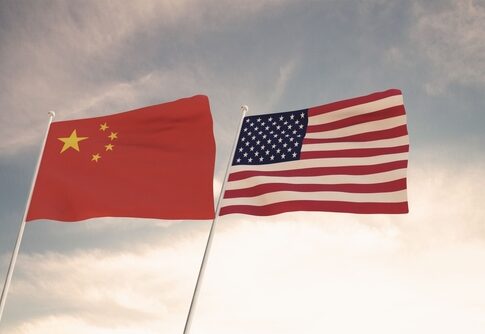China’s economic powerhouse status comes with a dark underside of human rights violations and ethical sourcing issues that American consumers unknowingly support through everyday purchases. American businesses face increasing pressure to examine their supply chains as regulatory scrutiny intensifies and consumers become more aware of the hidden costs behind “Made in China” labels. Why do American companies continue manufacturing in China despite known ethical issues?
China’s Economic Power and Hidden Costs
China stands as the world’s second-largest economy and remains a key trading partner for Western nations, with bilateral trade valued at astronomical figures that drive global commerce. Behind this economic miracle lies a concerning reality of human rights abuses, particularly in regions like Xinjiang, where Uyghur minorities face systemic oppression, including forced labor programs that directly supply global manufacturing chains.
The Chinese Communist Party has crafted a complex legal framework that enables these abuses while simultaneously courting foreign investment through promises of reform and market access. Recent legislation like China’s Anti-Foreign Sanctions Law creates mechanisms to penalize businesses that comply with foreign sanctions against China, placing Western companies in an impossible position between regulatory compliance at home and market access abroad.
It was the plan all along! pic.twitter.com/UIlCaQxshe
— Joshua Philipp (@JoshJPhilipp) April 9, 2025
Regulatory Traps and Business Challenges
Foreign businesses operating in China face a labyrinth of restrictions and regulations designed to benefit domestic competitors while extracting technology and expertise from international firms. The Foreign Investment Screening Mechanism implemented in 2021 allows Chinese authorities to review and potentially block investments under vague “national security” justifications that frequently target American and European companies.
China’s infamous “chop system” for legal transactions creates additional risks, as companies must surrender control of official seals that validate all business activities to Chinese nationals. Loss or theft of these chops can lead to catastrophic outcomes for foreign businesses, while directors and senior managers may face personal legal liability and travel restrictions if business disputes arise.
.@JoshJPhilipp exposes why the CCP's egregious human rights abuses—like forced organ harvesting—go unnoticed.
"Look at some of the biggest investors for New York Times, for example. Almost all of them are heavily invested in China." pic.twitter.com/yxnD4hm9XF
— EpochTV (@EpochTV) March 14, 2025
Human Rights Implications for American Consumers
The United Nations has documented extensive human rights violations in China that “may constitute international crimes, in particular, crimes against humanity,” according to official reports. These abuses directly connect to consumer products through supply chains that incorporate cotton from Xinjiang, electronics assembled in factories with questionable labor practices, and countless everyday items produced under conditions that wouldn’t be tolerated in Western nations.
American businesses with supply-chain links to regions like Xinjiang face growing reputational, economic, and legal risks as awareness grows about forced labor programs. The Chinese government’s aggressive campaign against what it calls human rights abuse “lies” demonstrates the regime’s sensitivity to these issues, while simultaneously confirming the reality that consumer choices in America directly impact human suffering abroad.
American consumers increasingly find themselves at a moral crossroads where convenience and low prices must be weighed against ethical sourcing and human dignity. The hidden costs of Chinese goods extend beyond dollars and cents to fundamental questions about American values and the kind of global economic system citizens want to support through their purchasing power.


